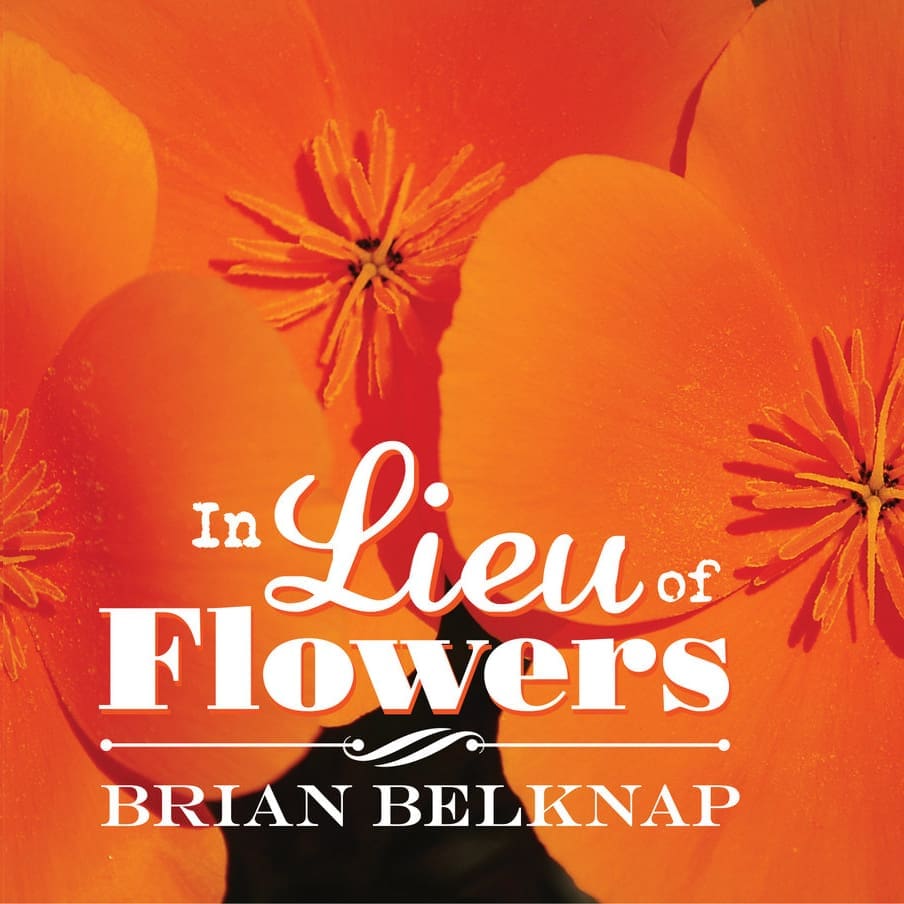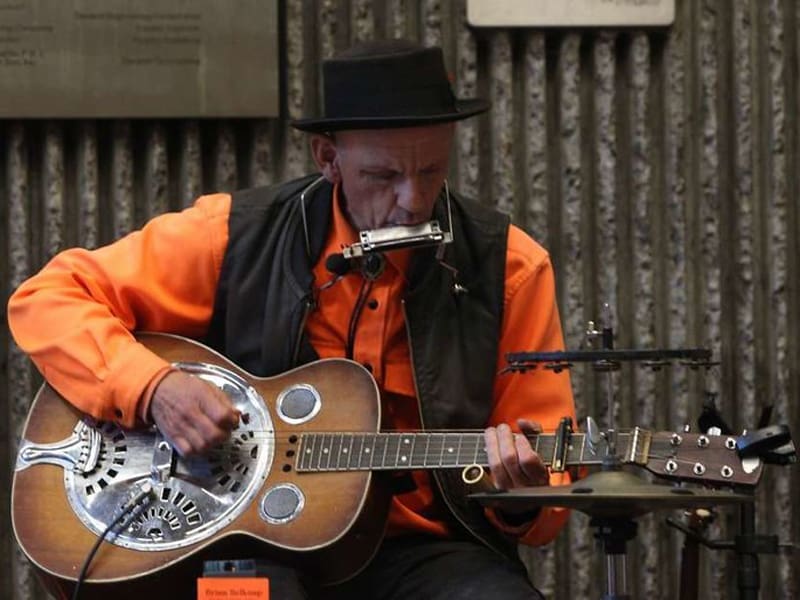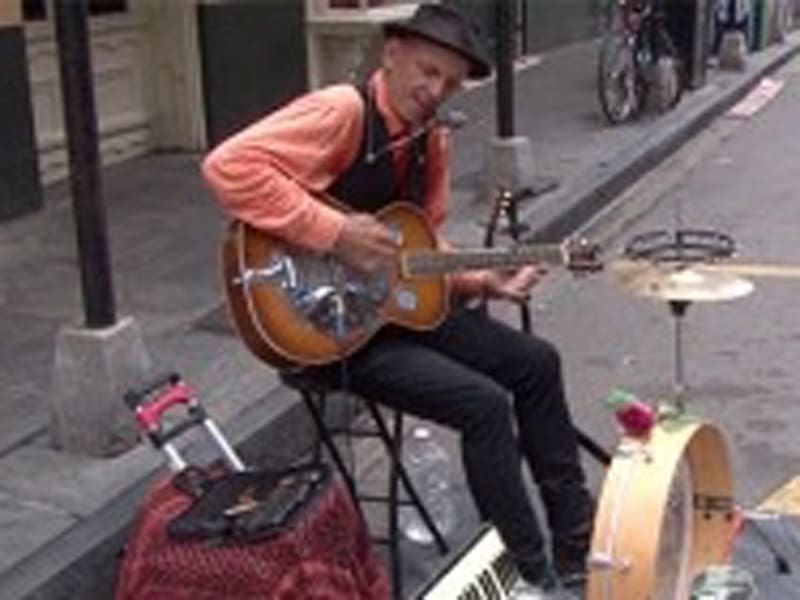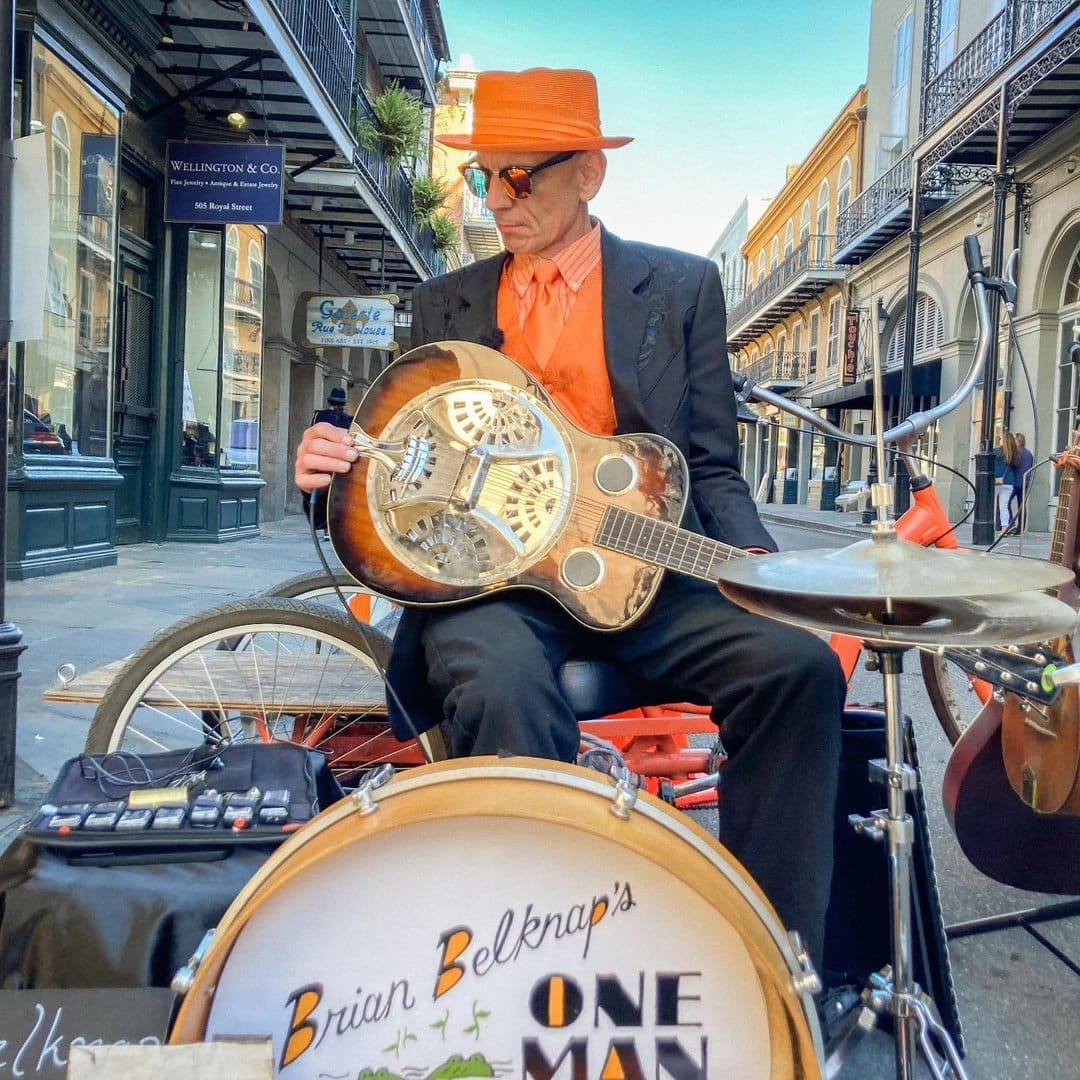About
BRIAN BELKNAP is a multi-instrumentalist and songwriter in the mold of Lucinda Williams and Townes Van Zandt. His music— a rough blend of broke-down folk, junk-country blues, and gut-bucket gospel, rendered on accordion, slide guitar, and mandolin—is the product of years of playing and occasionally living on the streets of Chicago, New Orleans and San Francisco.
In the nineties he fronted the band Turpentine and shared the stage with Calexico, Cake and Train, He was recently featured on the songwriters stage at French Quarter Fest and is the subject of an upcoming documentary by Adam Rifikin (Detroit Rock City, Last Movie Star).
Albums
Albums available exclusively online through Bandcamp.
His latest offering, In Lieu of Flowers, finds him in the capable hands of producer Mike Coykendall (M. Ward, She & Him, Bright Eyes, Blitzen Trapper):
“(Belknap should) take pride in the cohesive body of material that comprises the album. The mournful blues/country intersection “For Kevin” sounds like one of those rare songs that entered the world without an author and has simply always been. “Sad Confessions” finds a comfortable resting place between Johnny Cash and Rodney Crowell; others, such as the titular piece and “Epitaph” are the kind of ramshackle country the Rolling Stones favored throughout the 1970s. Here, that tore down music sounds like it’s gliding closer to perfection, becoming perfectly comfortable in the hands of those who’ve brought these songs into being.
Elsewhere, “High Wire” establishes itself as a tune that deserves to become part of the permanent lexicon of song, one that gets passed around at picking parties and living room jams for ages to come. The same may be said of “Bearing Witness” or, really, anything on In Lieu of Flowers, a record born of personal and emotional upheaval but which finds its footing nicely and surely by the end, reminding us that there is peace to be found.”
In Lieu of Flowers
2018

Cradle to Grave
2010

Press

SF Chronicle
“Next time you think you have a tough job, think about Brian Belknap.
Belknap is a one-man band who plays on San Francisco streets and in BART stations, depending on the kindness of strangers for his income. . .

WWOZ New Orleans
“A self-taught musician who left a troubled home at an early age, Brian Belknap thumbed cross country making what he could playing on the streets. Finding factory work, he honed his skills practicing in boiler rooms and on loading docks during lunch breaks, organizing when he could against the horrible working conditions he often found himself in. . .

SF Gate
“Brian Belknap is a singer-songwriter whose music has a knack for tapping the darkness of his soul and being joyful at the same time.
His influences include Ry Cooder, the Flatlanders and Bob Dylan. He relates to the loose, relaxed quality of some of their records, and it’s something he aims for when composing and performing. . .
Media
Contact
For information on projects and events booking, please fill out the form below.

